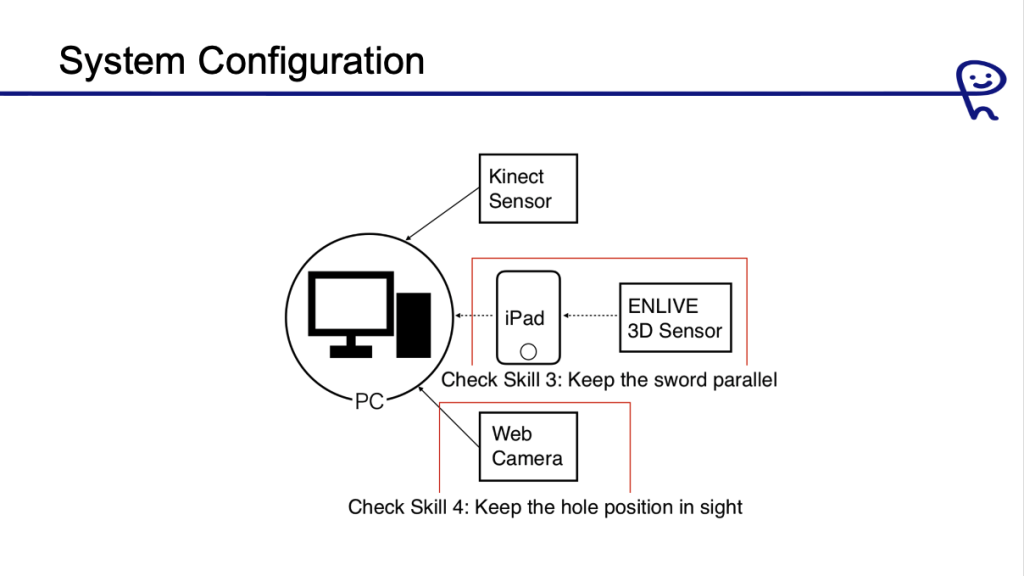Yu Shibuya, Riku Yasui: A Learning Support System of Acquiring Four Skills to Succeed a Fundamental Trick of Kendama Named as “Around Japan”, Human-Computer Interaction. Theoretical Approaches and Design Methods (Proc. HCII2022), pp. 613-622 (2022).
Abstract
The kendama is a traditional Japanese skill toy. It has been played for a long time in Japan. In addition, it is also well-known to foreigners, e.g. people in United States, Denmark, and Taiwan. Playing kendama might be an ice breaker between players and non-players and induce communication among them. In this study, we propose a learning support system of acquiring four skills to succeed a fundamental trick of kendama named as “around Japan”. The system measures the acquisition degree of each skill of users. When users do wrong movement during measurement, the system shows it by a voice message. In addition, after the measurement, the system shows graphs which express the acquisition degrees of each skill of users and shows text messages about the evaluation of each skill. As a result of experiment, it was not able to demonstrate that the system raised the success rate of “around Japan” significantly. However, the system made users keeping their motivation to acquire “knee bending and stretching skill” and “keeping hole insight skill”.

